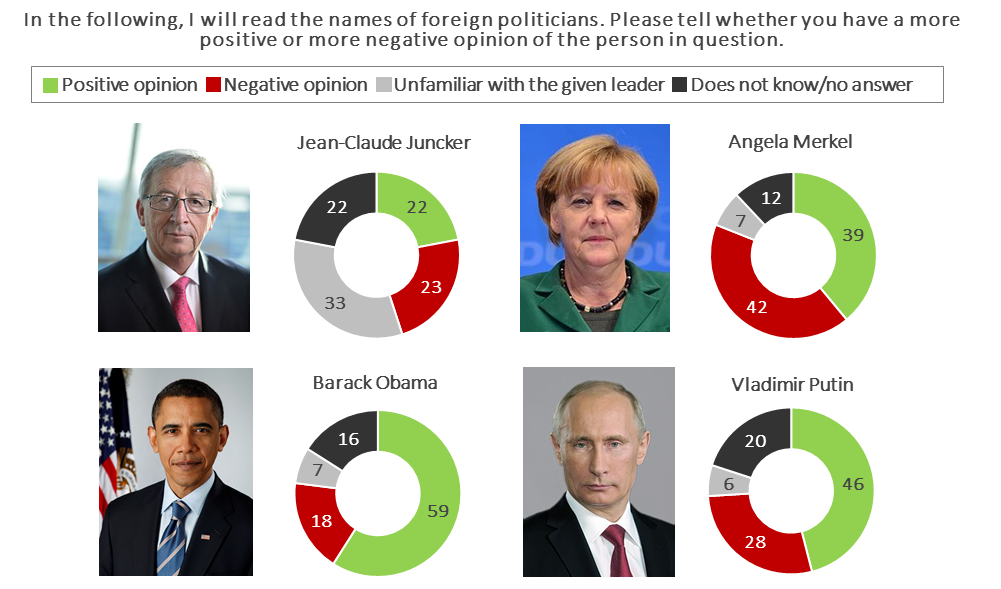Opinions on the German Chancellor in Hungary present a double-sided picture: while 39 per cent of Hungarians are more positive in their assessment of Ms. Merkel, 42 per cent rather form a negative opinion on her person. Besides the German leader, Jean-Claude Juncker, President of the European Commission, can also be considered a divisive figure in Hungary; however, the images formed of Vladimir Putin and Barack Obama are positive.
Following the year 2015 that was burdened by the issue of immigration, the results also call attention to the national unity established around the Hungarian government’s immigration policies, as opposed to the divisiveness of the two leading figures of the European political elite in the face of Hungarian public opinion.
Hungarians are divided in their assessment of German Chancellor Angela Merkel: while 39 per cent of Hungarians are more positive in their assessment of Ms. Merkel, 42 per cent rather form a negative opinion on her person. 22 per cent of Hungarians have a favourable opinion of Jean-Claude Juncker, as opposed to the 23 per cent whose assessment of his performance is negative. At the same time, one-third of respondents were unable to identify the President of the European Commission. In contrast, the proportion of Vladimir Putin’s critics is a mere 28 per cent, compared to almost half (45 per cent) of respondents harbouring a positive opinion of the Russian leader.
The image formed of Barack Obama is similarly positive; three-fifth (59 per cent) of the adult Hungarian population relates positively to the President of the United States, while only 18 per cent are critical of him.
Methodology
Nézőpont Intézet’s latest public opinion telephone poll was conducted during January 4-7, 2016 by asking 1000 people. This representative sample pertains to the population age 18 and over, sorted by gender, age, region, settlement type and schooling. In case of samples comprising the responses of 1000 people the maximum margin of error is 3,2 percent.
Download here.
